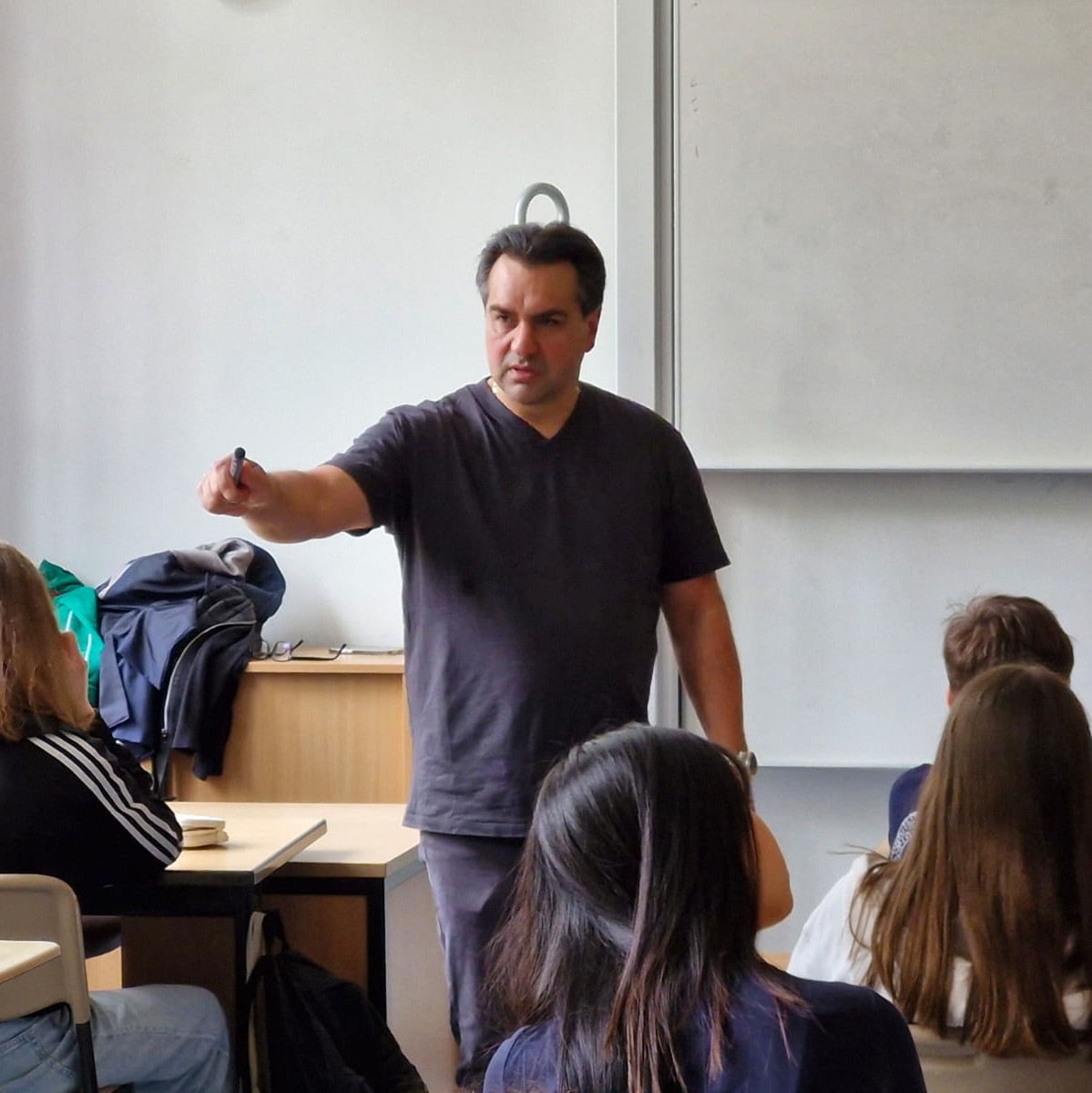No Return: How Former Inmates Guide Youth and Themselves Towards a Better Future
"Welcome. We hope to never see you here again." With these words, Teyfik Sahin greets a group of teenagers who, despite their cool facade, show signs of nervousness. And it's no wonder—they're not just anywhere; they're in Santa Fu, the Hamburg-Fuhlsbüttel Correctional Facility.

Teyfik Sahin knows this place all too well. He spent 15 years here for a joint murder conviction. Now, as an employee and since 2024, the director of the non-profit organization "Prisoners Help Youth" (Gefangene helfen Jugendlichen - GhJ), the 46-year-old regularly returns with young offenders or those at risk of offending. Not because he has fond memories of this place—quite the opposite. He wants to help young people who have started down the wrong path to make a U-turn. To amplify his message, he has enlisted some help.
Ten current inmates of Santa Fu, convicted of various crimes—ranging from fraud and drug trafficking to violent offenses—share with the teenagers the harsh realities of life behind bars. They debunk the myths of a supposedly relaxed or thrilling prison life and vividly describe the reality. They talk about what it feels like to lose the freedom to open your own door, about the violence among inmates, and about the humiliating body searches—not just for them, but also for the loved ones who visit. What weighs most heavily on them is knowing the pain they have caused their families and those close to them.
Inmates Connect with Youth in a Unique Way
The inmates who participate in this violence and crime prevention project are carefully selected. They volunteer, and GhJ conducts thorough interviews to ensure they are suitable for the role—genuine remorse, self-reflection, and a strong desire to help young people are essential prerequisites. Within the prison, the project enjoys a high level of trust, allowing the conversations to take place without guards present. The atmosphere quickly shifts from initial apprehension to a candid exchange, with the focus increasingly on the teenagers. After hearing the inmates' stories, it's the teens' turn to talk about how and why they have found themselves in trouble with the law.
What makes this conversation special is that it happens on equal footing. There are no excuses—the inmates know exactly what the teens are going through:
"Don't tell me it doesn't affect you when you carry a weapon!" "Of course, you act more aggressively when you're carrying a 'totti' [a bludgeon]." Or, "You think you have no other choice in your neighborhood? Stop messing around and sit down to study!" These words have a different impact when they come from convicted criminals rather than parents or teachers. Teyfik Sahin is well aware of this unique dynamic: "We speak plainly. These kids are tough—we were too."
Teyfik Sahin Uses His Story to Raise Awareness
It is this authenticity that makes the project so unique and successful. The walls of GhJ's office are covered with awards: the German Engagement Award, the Hamburg Integration Prize, and many more. Today, the organization has 15 employees, two-thirds of whom have been in prison themselves. GhJ was founded 25 years ago by Ashoka Fellow Volkert Ruhe, who started the project while serving his sentence in Santa Fu. Since then, the organization has continuously evolved. In addition to prison visits, which remain the core offering, GhJ now also conducts school visits, educational boxing programs, and anti-violence training—all led by former inmates or those in open detention. Over 5,000 young people have participated in prison visits, and 11,500 students have been reached through prevention programs.

Teyfik Sahin's appointment as director in 2024 is thanks to his encounter with Volkert Ruhe. In 2017, a few years after his release, Sahin had found his footing again, working as a self-employed carpenter and earning good money. But his involvement in the project made him realize that he could use his life story to make a positive impact and give something back to society:
"The teenagers were talking about making the same mistakes I had made." To prevent them from ending up in prison too, and "to avoid creating more victims," Sahin decided to use his story to raise awareness. His story begins in the late 1980s, and early 1990s, in Hamburg's Wandsbek district: out of boredom, Sahin started stealing as a teenager, driving without a license, and later committing burglaries. He increasingly began to procure weapons and other items for criminal gangs, making a name for himself in the scene and sinking deeper into organized crime. "I was never caught and thought, 'What could possibly happen to me?'" At 21, in 1998, he was finally sent to prison with a life sentence. Fifteen years later, after serving the minimum sentence, he was released and, contrary to his fears, was not deported to Turkey.
Sahin says, "At 36, I was given a second chance at life—and I want to make the most of it."
GhJ Enables Genuine Participation for Inmates
"Even though the work at GhJ can be mentally exhausting, I stick with it. It makes me proud to see the positive changes in some of the young people we work with," Sahin shares. The project not only helps at-risk youth but also benefits the inmates. According to statistics from the Federal Ministry of Justice, the recidivism rate in Germany is between 46% and 66% (the longer the sentence, the higher the rate). This is partly due to the lack of social participation opportunities for inmates. GhJ addresses this issue directly: "The role at GhJ provides stability. Former offenders regain self-confidence, and by sharing their stories, they critically engage with their past." The impact is evident:
"Our program cuts the recidivism rate in half. Only about a third of the inmates who participate in our program re-offend after release," Sahin reports.
GhJ's goal from the start has been to offer inmates the chance to participate in society despite their criminal record and to show them that everyone can contribute to a better community.